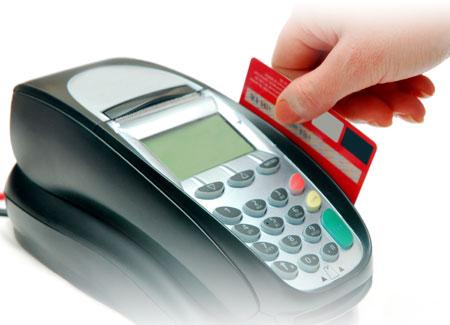 Applying for a merchant account is not quite as straightforward a process as opening up a checking account. There is a number of requirements that applicants have to meet and, to understand why the process is as stringent as it is, you need to understand exactly what a merchant account is.
Applying for a merchant account is not quite as straightforward a process as opening up a checking account. There is a number of requirements that applicants have to meet and, to understand why the process is as stringent as it is, you need to understand exactly what a merchant account is.
From an underwriting point of view, merchant account is a form of line of credit that an acquiring bank (merchant bank) extends to a merchant. When you accept a card payment, your bank will “acquire” it, typically at the end of the business day, and within a day or two will deposit the transaction amount, after subtracting the interchange fee and its own processing charges, into your designated bank account.
At the same time the acquirer will submit a request for payment to your customer’s card issuing bank. However, the issuer and its cardholder typically have up to six months to dispute the transaction. If the dispute is valid, the merchant must reimburse the cardholder for the total amount of the sale. However, if the merchant is out of business, the acquirer bears the full liability. That is the reason why acquirers use the application process to establish the credit worthiness of both the applicant organization and its principals.
Following is a list of documents that you will be asked to provide to begin the application process:
- Merchant account application. In this form you will provide some basic details about both your organization and yourself, including your address (business and personal), social security number, federal tax ID, phone and fax numbers, email address, website address, bank account info, etc.
- Articles of Incorporation. All incorporated organizations need to provide a copy of their Articles of Incorporation or an equivalent document. Sole proprietorships are required to provide their “Doing Business As” (DBA) names. Individuals cannot set up merchant accounts.
- Business license. If your line of business is regulated and requires a license or a permit, either a federal or a state one, you will need to provide a copy of it.
- Bank statements. Typically required are your organization’s three most recent monthly bank statements.
- Processing statements. If you are currently accepting credit cards and are looking for a new service, you will be asked to provide your three latest processing statements.
- Voided check. You will have to provide a voided copy of a check for the bank account into which you would want your money to be deposited. The check must have your legal or “Doing Business As” (DBA) name pre-printed on it. If you have not yet received your permanent checks, you will have to provide a bank letter, signed by a bank representative, stating your account details.
As you see, there are quite a few requirements for organizations which want to accept card payments and it is by no means certain that your application will be approved. However, if you provide the requested paperwork and have a decent credit history, chances are that your merchant account application will be approved.
Once your application paperwork is received and before approving it, payment processors must verify that the applicant is a bona fide organization and that the transactions the merchant intends to be processing are genuine and in compliance with applicable laws and industry regulations. Such verification procedures vary, but typically includes the following:
- Credit check, background investigations, and reference checks of the merchant. If the credit check of the merchant raises questions, the processor may also conduct a credit check of:
- The owner, if the merchant is a sole proprietor; or
- The partners, if the merchant is a partnership; or
- The principal shareholders, if the merchant is a corporation.
- Inspection of the merchant’s physical location and records to ensure that the merchant has sufficient capabilities to conduct its operations, as described in the merchant application. If the merchant has more than one outlet, the processor would usually inspect at least one of them.
- Checking the Member Alert to Control (High-risk) Merchants (MATCH) system, also known as Terminated Merchant File.
- Examination of the applicant’s previous merchant agreements.
Now, it should be stated that procedures vary greatly between merchants, which are considered “low risk” and ones that are classified as “high risk” and these differences will be explored in other articles.
What Our Customers Are Saying
UniBul is ranked based on 159 user reviews.
UniBul enables American and international businesses to accept payments for the things they sell on their websites.
















